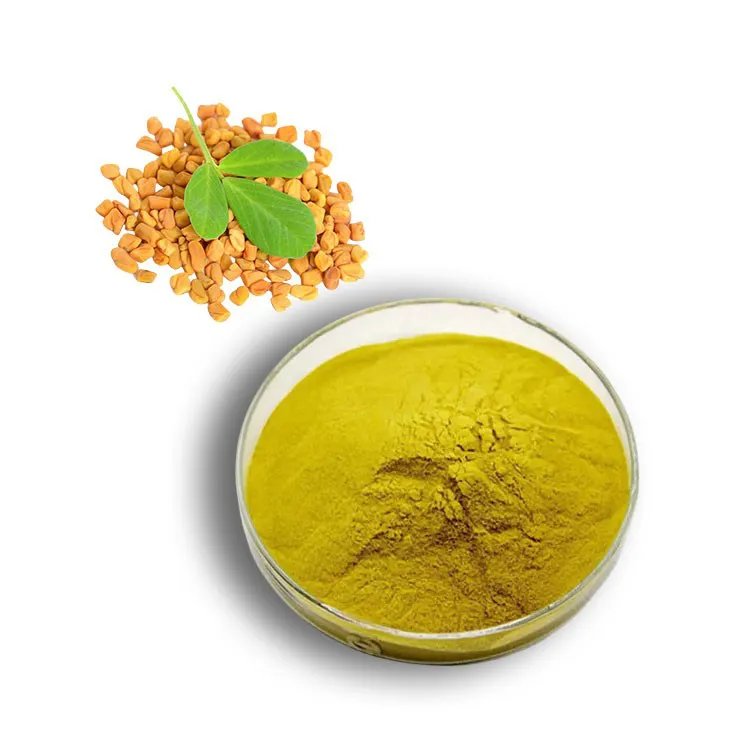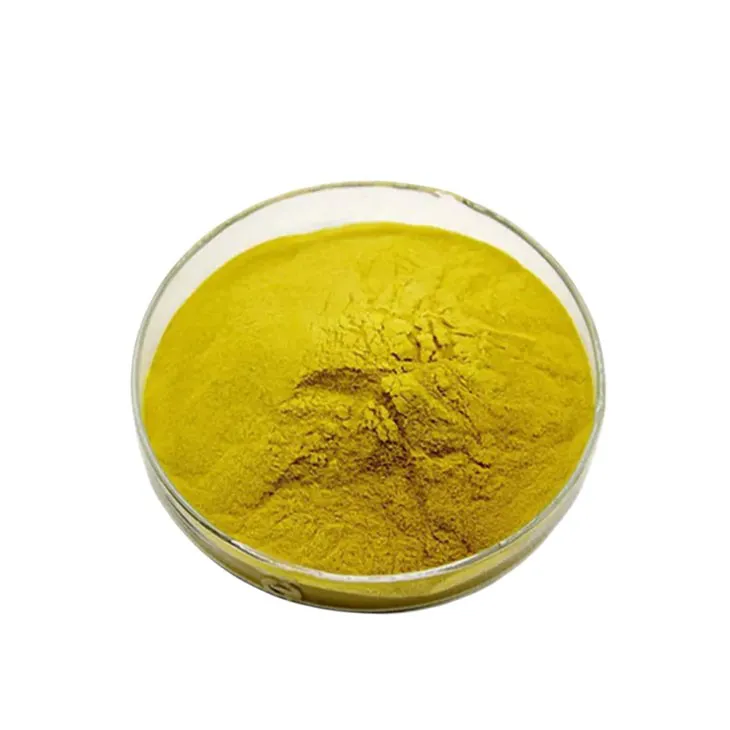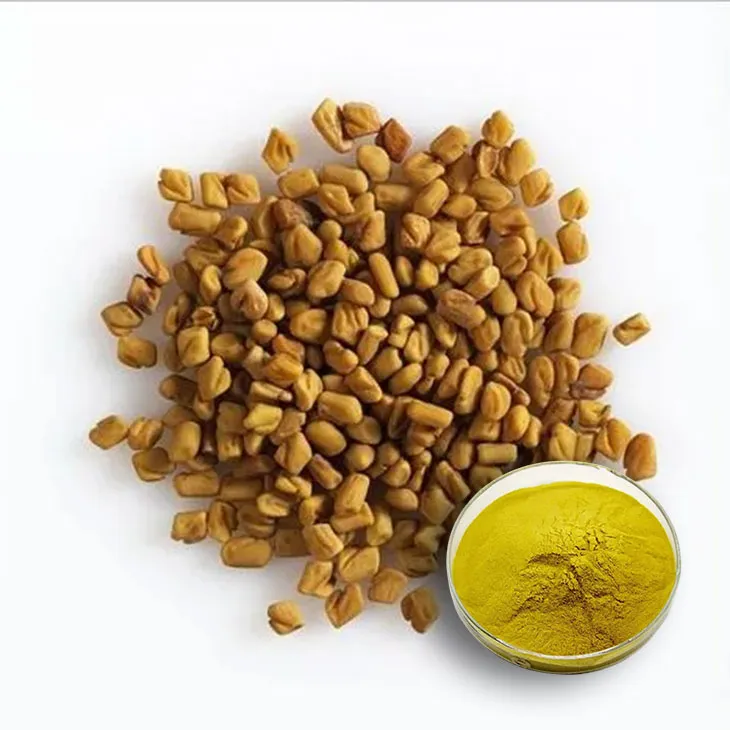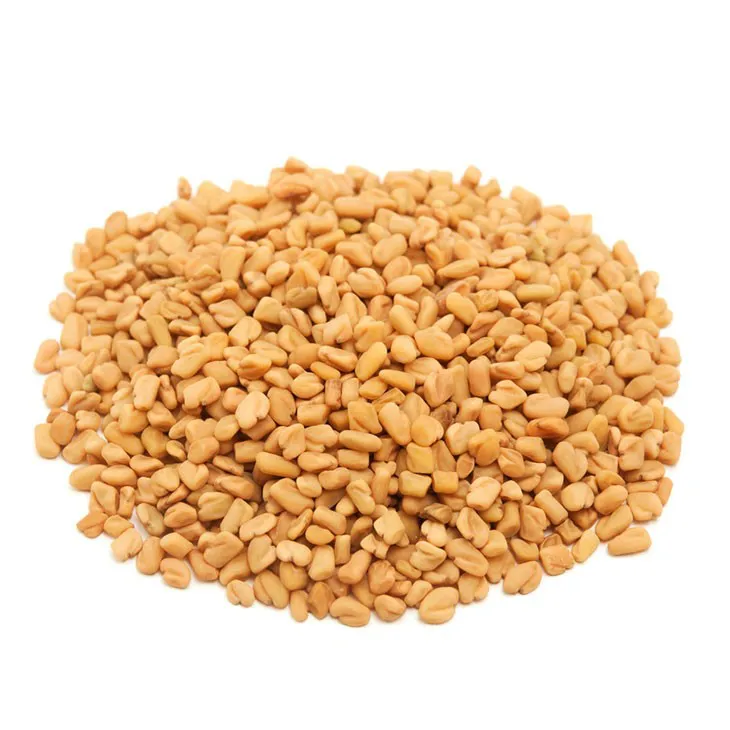- 0086-571-85302990
- sales@greenskybio.com
How to extract fenugreek extract powder from plants?
2024-12-01

1. Introduction
Fenugreek, known as Hu lu ba in some regions, is a plant with a wide range of potential health benefits. The extraction of its extract powder from the plant is a complex but important process. This process is crucial for obtaining a high - quality product that can be used in various applications such as dietary supplements, traditional medicine, and the food industry. The key aspects of this extraction process include the selection of raw materials, appropriate extraction techniques, and proper purification steps.

2. Selection of Raw Materials
2.1. Plant Species and Varieties
There are different species and varieties of fenugreek plants. It is essential to choose the appropriate one for extraction. Different varieties may have different chemical compositions, which can affect the properties of the final extract powder. For example, some varieties may have higher concentrations of certain active compounds such as saponins or flavonoids. Research should be conducted to identify the variety that best suits the intended use of the extract powder.
2.2. Harvesting Time
The harvesting time of fenugreek plants significantly impacts the quality of the raw materials. Harvesting at the right time ensures that the plants contain the optimal levels of active ingredients. If harvested too early, the plants may not have fully developed these components. On the other hand, if harvested too late, some of the valuable compounds may start to degrade. Typically, fenugreek plants are harvested when the seeds are mature but before they start to shatter.
2.3. Quality of Raw Plants
Only healthy and pest - free plants should be selected for extraction. Diseased or damaged plants may contain lower levels of active ingredients or may even introduce contaminants into the extract. Additionally, the growth conditions of the plants, such as soil quality, water availability, and sunlight exposure, can also influence the quality of the raw materials. Plants grown in good agricultural practices are more likely to produce high - quality extract powder.

3. Extraction Techniques
3.1. Maceration
Maceration is one of the traditional and commonly used extraction techniques for fenugreek.
- Process: In this method, the fenugreek plant material (usually dried and powdered) is soaked in a suitable solvent. The solvent penetrates the plant cells and dissolves the desired compounds. The mixture is then left to stand for a period of time, usually several hours to days. For example, if ethanol is used as the solvent, the fenugreek powder may be soaked in ethanol for 24 - 72 hours.
- Advantages: It is a relatively simple and low - cost method. It does not require complex equipment, making it accessible for small - scale extractions. Also, it can be used to extract a wide range of compounds as long as the appropriate solvent is chosen.
- Disadvantages: The extraction time can be long, which may lead to degradation of some of the more sensitive compounds. Additionally, the extraction efficiency may not be as high as some other methods.
3.2. Percolation
Percolation is another extraction method suitable for fenugreek.
- Process: Here, the solvent is continuously passed through the bed of fenugreek plant material. This can be achieved by setting up a percolation column. The solvent slowly percolates through the plant material, extracting the compounds as it goes. For instance, a slow drip of the solvent can be maintained over the fenugreek powder in a column for several hours.
- Advantages: It generally has a higher extraction efficiency compared to maceration. The continuous flow of the solvent helps in better extraction of the compounds, especially those that are less soluble. It also allows for a more controlled extraction process.
- Disadvantages: It requires more specialized equipment, such as a percolation column, which may be costly for small - scale operations. There is also a need to carefully control the flow rate of the solvent to ensure optimal extraction.
3.3. Supercritical Fluid Extraction
Although less commonly used on a small - scale for fenugreek extraction, supercritical fluid extraction has its own advantages.
- Process: Supercritical fluids, such as supercritical carbon dioxide, are used as the extraction medium. The supercritical fluid has properties between those of a gas and a liquid, which allows it to penetrate the plant material and dissolve the target compounds effectively. The extraction is carried out under specific pressure and temperature conditions. For example, carbon dioxide is maintained in a supercritical state at a certain pressure (around 73.8 bar) and temperature (around 31.1 °C).
- Advantages: It is a "clean" extraction method as supercritical carbon dioxide is non - toxic, non - flammable, and leaves no residue in the final extract. It can also be highly selective, allowing for the extraction of specific compounds. Additionally, the extraction can be carried out at relatively low temperatures, which helps to preserve the integrity of heat - sensitive compounds.
- Disadvantages: The equipment required for supercritical fluid extraction is very expensive and requires specialized training to operate. It is mainly suitable for large - scale industrial applications.

4. Choice of Extraction Solvent
The choice of extraction solvent is a critical factor in obtaining a high - quality Fenugreek Extract Powder.
- Ethanol: Ethanol is a popular solvent for fenugreek extraction. It is effective in dissolving a wide range of compounds, including saponins, flavonoids, and alkaloids. Ethanol is also relatively safe to handle and is approved for use in the production of dietary supplements. However, different concentrations of ethanol may be required depending on the specific compounds to be extracted. For example, a higher concentration of ethanol may be more effective for extracting saponins, while a lower concentration may be suitable for flavonoids.
- Water: Water can also be used as an extraction solvent for fenugreek. It is a natural and inexpensive solvent. Water is particularly good at extracting water - soluble compounds such as certain polysaccharides. However, the extraction efficiency may be lower compared to ethanol for some of the more hydrophobic compounds. Also, water - based extracts may be more prone to microbial growth, which requires additional preservation measures.
- Hydrocarbon Solvents: Solvents like hexane are sometimes used, especially for extracting lipid - related compounds from fenugreek. However, hydrocarbon solvents are flammable and may pose safety risks. They also require careful removal from the final extract to ensure that no residues are left, as these residues may be harmful if the extract is used in dietary supplements.

5. Factors Affecting Extraction
5.1. Temperature
Temperature plays a significant role in the extraction process.
- Increasing Temperature: Higher temperatures generally increase the solubility of compounds in the solvent, which can lead to faster and more efficient extraction. However, if the temperature is too high, it can cause the degradation of some heat - sensitive compounds. For example, if fenugreek is being extracted with ethanol at a very high temperature, some of the flavonoids may be oxidized or decomposed.
- Optimal Temperature Range: For most fenugreek extraction methods, an intermediate temperature range is often preferred. For ethanol extraction, a temperature between 40 - 60 °C may be optimal. This range allows for sufficient solubility of the compounds while minimizing the risk of degradation.
5.2. Extraction Time
The extraction time also affects the quality and yield of the Fenugreek Extract Powder.
- Short Extraction Time: A short extraction time may not allow sufficient dissolution of all the desired compounds. For example, if maceration is carried out for only a few hours, some of the less soluble compounds may not be fully extracted into the solvent.
- Long Extraction Time: On the other hand, a very long extraction time can lead to over - extraction, where unwanted compounds may also be extracted, or the already - extracted compounds may start to degrade. In percolation, if the process is continued for too long, the extract may become contaminated with cell debris or other unwanted substances.
- Finding the Optimal Time: The optimal extraction time depends on the extraction method, solvent, and the type of fenugreek material. For example, in maceration with ethanol, an extraction time of 24 - 48 hours may be suitable for obtaining a good balance between yield and quality.
6. Purification Steps
After extraction, purification steps are necessary to obtain pure Fenugreek Extract Powder for various uses.
- Filtration: Filtration is often the first step in purification. It helps to remove large particles such as plant debris, cell walls, and undissolved solids from the extract. Simple filtration using filter paper or a filter cloth can be carried out for a rough filtration. For a more refined filtration, membrane filters with different pore sizes can be used. For example, a 0.45 - μm membrane filter can be used to remove smaller particles.
- Centrifugation: Centrifugation can be used to separate the extract from any remaining solid particles or impurities that are difficult to remove by filtration. The extract is placed in a centrifuge tube and spun at a high speed. The denser particles will sediment at the bottom of the tube, and the supernatant, which is the purified extract, can be collected.
- Evaporation and Drying: After filtration and centrifugation, the solvent needs to be removed from the extract to obtain a dry powder. Evaporation can be carried out using a rotary evaporator under reduced pressure. This helps to remove the solvent at a lower temperature, which is beneficial for preserving the quality of the extract. Once most of the solvent is removed, the remaining semi - solid extract can be dried further in a drying oven or freeze - dryer to obtain a fine powder.
7. Conclusion
The extraction of fenugreek (Hu lu ba) extract powder from plants is a multi - step process that requires careful consideration of various factors. From the selection of raw materials to the choice of extraction techniques, solvents, and purification steps, each element plays a crucial role in obtaining a high - quality product. With proper attention to these details, it is possible to produce fenugreek extract powder that can be used effectively in dietary supplements, traditional medicine, and other applications.
FAQ:
What is the best time to harvest fenugreek plants for extraction?
The best time to harvest fenugreek plants for extraction is when they reach the appropriate stage of growth. This is typically when the plants have developed fully but before they start to decline in quality. Usually, it is determined by factors such as the plant's maturity level, which can be judged by the appearance of the leaves, stems, and seeds. For example, when the seeds have reached a certain size and color, it might be a good indication that it is the right time for harvest.
What are the advantages of maceration and percolation in fenugreek extract extraction?
Maceration allows for a relatively simple and cost - effective way to extract the active compounds from fenugreek. It involves soaking the plant material in a solvent for an extended period, which helps in the dissolution of the desired components. Percolation, on the other hand, can provide a more efficient extraction as the solvent continuously passes through the plant material, facilitating a better transfer of the active ingredients. Both methods can help in obtaining a relatively pure extract with a good yield if carried out properly.
How does the extraction solvent affect the quality of fenugreek extract powder?
The extraction solvent plays a crucial role in determining the quality of fenugreek extract powder. Different solvents have different affinities for the various compounds present in fenugreek. For instance, if a solvent is too polar, it may extract unwanted substances along with the desired ones, affecting the purity of the extract. On the other hand, a non - polar solvent may not be able to extract all the important active components effectively. The choice of solvent also affects the chemical stability of the extracted compounds, which in turn can impact the overall quality, such as the shelf - life and bioactivity of the fenugreek extract powder.
What are the key factors to consider in controlling extraction temperature?
When controlling the extraction temperature for fenugreek extract, several factors need to be considered. Firstly, different active compounds in fenugreek may have different optimal extraction temperatures. Too high a temperature may cause the degradation of some heat - sensitive compounds, reducing the quality and effectiveness of the extract. Secondly, the boiling point of the extraction solvent is also important. If the extraction temperature is close to or above the solvent's boiling point, it can lead to solvent evaporation problems and potential safety hazards. Additionally, the temperature can also influence the rate of extraction, with higher temperatures generally leading to faster extraction rates, but not always resulting in better quality extracts.
Why are purification steps necessary in obtaining fenugreek extract powder?
Purification steps are necessary in obtaining fenugreek extract powder to remove impurities and unwanted substances. After the initial extraction, the extract may contain various by - products, such as plant debris, pigments, and other non - active compounds. These impurities can affect the quality, taste, and stability of the final product. Purification helps in concentrating the active components, ensuring a more consistent and high - quality fenugreek extract powder that is suitable for use in dietary supplements or other applications.
Related literature
- Fenugreek: A Review of Its Phytochemistry, Pharmacology, and Potential Applications"
- "Optimization of Fenugreek Extract Production: A Comprehensive Study"
- "The Role of Fenugreek Extract in Dietary Supplements: An In - Depth Analysis"
- ▶ Hesperidin
- ▶ citrus bioflavonoids
- ▶ plant extract
- ▶ lycopene
- ▶ Diosmin
- ▶ Grape seed extract
- ▶ Sea buckthorn Juice Powder
- ▶ Beetroot powder
- ▶ Hops Extract
- ▶ Artichoke Extract
- ▶ Reishi mushroom extract
- ▶ Astaxanthin
- ▶ Green Tea Extract
- ▶ Curcumin Extract
- ▶ Horse Chestnut Extract
- ▶ Other Problems
- ▶ Boswellia Serrata Extract
- ▶ Resveratrol Extract
- ▶ Marigold Extract
- ▶ Grape Leaf Extract
- ▶ blog3
- ▶ blog4
- ▶ blog5
-
The best lemon juice powder in nature.
2024-12-01
-
Organic Vitamin K2 Powder Suppliers
2024-12-01
-
Bulk purchase of L - tyrosine.
2024-12-01
-
Vitamin K2 Manufacturers
2024-12-01
-
100% Pure Natural Rutin.
2024-12-01
-
Chinese Citrus Bioflavonoid Suppliers.
2024-12-01
-
Purple Sweet Potato Extract
2024-12-01
-
Rose Hip Extract
2024-12-01
-
Avocado Extract Powder
2024-12-01
-
Moringa powder
2024-12-01
-
Lavender Extract
2024-12-01
-
Cat Claw Extract
2024-12-01
-
Epimedium extract powder
2024-12-01
-
Motherwort Extract
2024-12-01
-
Medicinal Marshmallow Extract
2024-12-01
-
Citrus bioflavonoids
2024-12-01





















